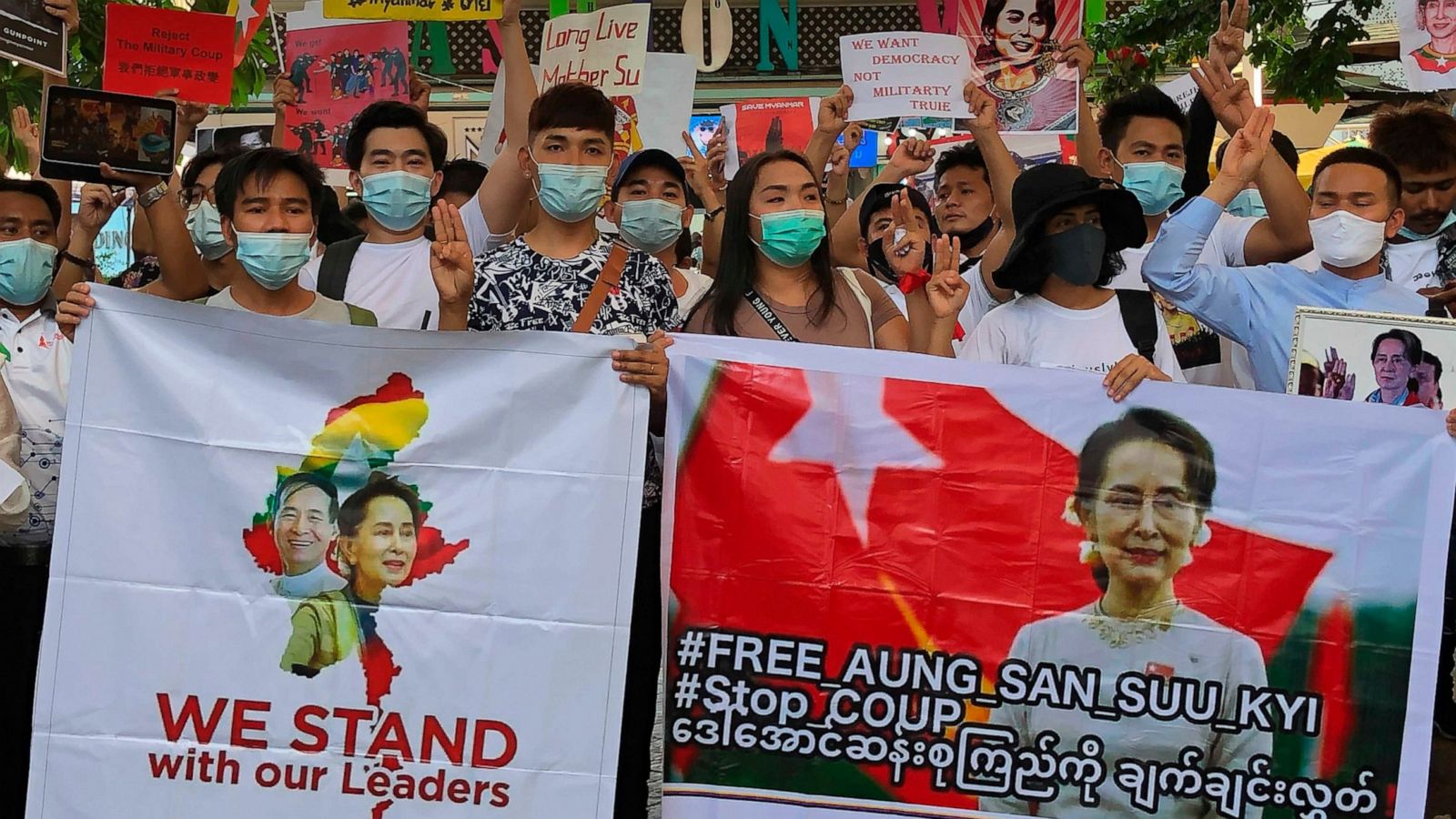

Min Aung Hlaing indirectly acknowledged the widespread opposition to his government in a televised speech Thursday. They held signs, many in English and Mandarin, with slogans such as, "Reject the Coup, Shame on you China" and "Dear Chinese Government, Don't Stay Muted. Hundreds of protesters also gathered outside the Chinese Embassy to criticize what they said was Beijing's failure to condemn the military takeover. Min Aung Hlaing, the much-scorned coup leader who now heads the ruling junta. On Thursday, in the southern city of Dawei, protesters stamped and wiped their feet on a poster of Senior Gen.

Large rallies have also taken place in the capital, Naypyitaw - which is unusual since the planned city has a large military presence.

Some protesters squeezed messages lengthwise onto oars, including "Respect Our Votes" and "Say No to Coup." In Myanmar's eastern Shan State, home to the country's largest ethnic minority group, scores of wooden long boats used for fishing and transportation on scenic Inle Lake hosted a unique floating protest, with passengers holding placards denouncing the coup and calling for justice. Residents streamed to the scene to protect the defiant officers from arrest. In a video shot Wednesday in a small village in the eastern state of Kayah, 42 police officers could be seen standing together to declare their support for the protesters and refuse entreaties from a senior officer to return to duty. There have also been reports of police officers who belong to the Kayah ethnic group risking their jobs to protest the takeover. "But the people understand the situation, and most of them are joining now." How long are they going to keep doing this?" asked protester Naw Ohn Hla, a human rights activist from the Karen ethnic group, at a demonstration in Yangon. "Our people have been oppressed by the junta for many years. But their deep mistrust of the military, which has brutally repressed their armed struggles for more autonomy, has made them uneasy allies with her party. On Thursday, people from Myanmar's ethnic minority groups, who are concentrated in far-flung, border states, joined in - a striking show of unity in a country where some groups have resented the Burman majority's control and have also had their differences with Suu Kyi. Factory workers and civil servants, students and teachers, medical personnel and people from LGBTQ communities, Buddhist monks and Catholic clergy have all come out in force. The rallies have drawn people from all walks of life, despite an official ban on gatherings of more than five people. In response to the coup, tens of thousands of protesters have marched daily in Yangon and Mandalay, the country's biggest cities - and the demonstrations have spread throughout the country, showing depth of the resistance. The junta said it was forced to step in because Suu Kyi's government failed to properly investigate allegations of fraud in recent elections, though the election commission has said there is no evidence to support those claims. 1, ousting leader Aung San Suu Kyi and preventing recently elected lawmakers from opening a new session of Parliament - a shocking reversal after about a decade of progress toward democracy in Myanmar. That's part of a growing trend, as more governments consider sanctions against the military. President Joe Biden, who ordered new sanctions and promised more measures to come as he demanded the junta hand power back to the elected government. Opposition to the coup received a major boost from abroad from U.S. Members of Myanmar's ethnic minorities marched through streets in traditional dress and floated on wooden long boats in a scenic lake Thursday to protest last week's coup, a sign of the broad and growing resistance to the military takeover.


 0 kommentar(er)
0 kommentar(er)
